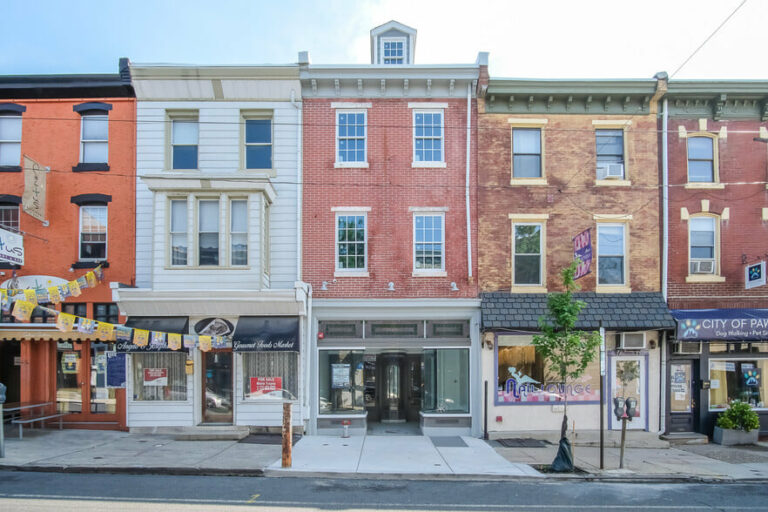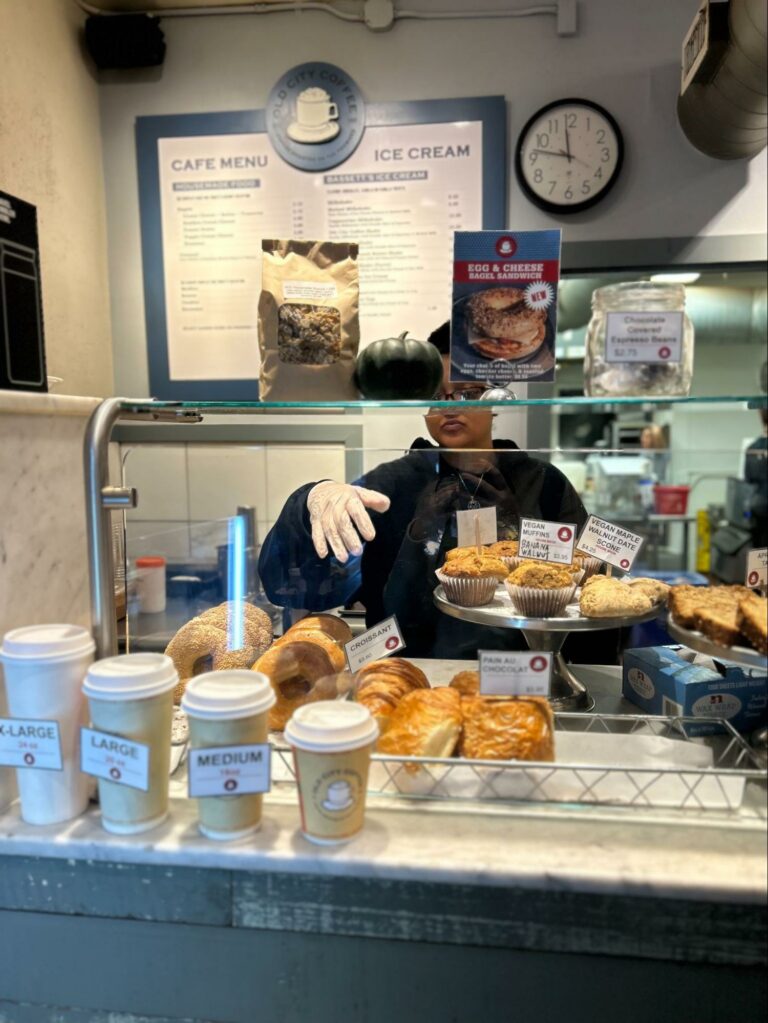Firth and Wilson Transport Cycles’s New Fleet
The Bicycle Coalition of Greater Philadelphia reports that “Philadelphia has more people commuting by bicycle, per capita, than any of the other ten biggest cities in the United States” (“Bike Commuting”). And as more urban commuters opt to ride their bicycles to work and across town, Philly’s bicycle culture continues to grow at a swift pace. Philadelphia now has a bike share program, Indego, and continues to welcome a proliferation of bike lanes. It’s not a strange or uncommon site to see a coworker arrive in lycra shorts before changing into more professional garb at the beginning of the workday.
But still, even as more and more urban commuters are choosing to bike to work or social gatherings, it is easy to understand why the casual cyclist quickly abandons his or her bicycle for a car — his or her own, a rental, or via a ride-share application — once a heavy or awkward grocery bag enters into the equation.
A solution: transport cycles and cargo bikes. These cycles come in all different shapes and sizes. Some look like more conventional bicycles with trailers, some involve panniers with increased capacity, some look like conventional bikes that include a rack on the back or a basket on the front, and some almost look like a wheelbarrow bucket sitting between two wheels. These examples only scratch the surface of the possibilities of cargo bike customization, for example, some designs include three wheels. In short, cargo bikes are pedal-powered vehicles and for the most part, these cycles are human powered; however, some include an electrical assist component.
In actuality, these kinds of cycles might even predate their more recreational spin-off — what we would consider today a conventional bike. “With the ascendancy of the automobile and the urgency of the wartime manufacturing boom, freight bikes mostly went indoors, ferrying parts and personnel around factory floors,” writes Tom Clynes from Bicycling. “Eventually, the country’s suburban sprawl and inexpensive oil supply enshrined the car as the primary means of personal transport and utility. The bike industry responded by promoting the two-wheeler as a toy and a piece of sporting equipment.” But now, as more and more urban dwellers are considering how to live without a car payment or gas bill, it makes sense that people are considering adding a transport cycle to their personal fleet.
These cycles are not only for the urban cyclist to transport groceries or supplies; they can also be utilized by some businesses who are looking to decrease their environmental impact. Some businesses, like Wash Cycle Laundry, use cycles to transport products or deliver services. “For a business thinking about a switch to using a cargo bike instead of a car, money is the key factor. Cargo bikes cost between $1000 and $7000, and once you get past the initial price, the savings just start adding up,” write David Wilson, of Firth and Wilson, a full-service bike shop and retail showroom that specializes in transport cycles and cargo bikes. “Perhaps you could get a used car for that same price, but the additional costs associated with car ownership make a huge difference when measured over several years. There are no gas, oil, pollution, insurance, or parking issues when using a cargo bike. Maintenance costs are also significantly less, your carbon footprint is less, and you get a bit of exercise.”
At the end of 2016, Firth and Wilson received a grant from the Merchants Fund to manufacture seven complete cargo bikes of their own to add to their current inventory of bicycles. For over 150 years, the Merchants Fund has been supporting local businesses through financial assistance. They provide “small grants to small business in the City of Philadelphia. Grants are intended to either make money, save money or change the way a company does business” (http://www.merchantsfund.org/about/mission-history/).
Firth and Wilson are an example of how a business can pursue local funding sources that they were not initially aware of, and in their case, opportunities arose from their network. They first heard of The Merchants Fund from their friends at Norman Porter Jeans, a Philadelphia clothing company and previous Merchants Fund grant recipient. Next, they leveraged the support of the New Kensington Community Development Corporation (NKCDC) to qualify for funding.
“I would not say pursuing grants is a common activity for us, but it certainly makes sense to investigate as many funding sources as possible,” said Wilson. “We were also able to benefit from the Storefront Improvement Program, which reimburses businesses up to 50% of the costs for making external upgrades to their building. We used money from that program to install fully opening doors to cover our garage door entry to our shop (We are in a 7500 sqft warehouse space).”
During the installation, NKCDC connected Firth and Wilson with Finanta, a local non-profit lender, who supplied a bridge loan to pay for the doors before they were reimbursed by the Storefront Improvement Program.
These are just a few examples of the funding sources and resources available to local businesses in Philadelphia and Firth and Wilson’s story demonstrates how important it is to pursue these opportunities.
With this new fleet of cargo bikes, Firth and Wilson has the opportunity to continue to introduce a new form of transportation to Philadelphia in hopes that interest in the initial fleet will make it easier to continue producing these kinds of cycles right here in Philadelphia. The unveiling of the new fleet will be soon, but Victoria Firth provided me with this sneak peek:
“The cargo bikes we are making are more compact than most so it will be easy to store indoors. You’ll be able to carry kids or stuff in the front and rear of the bike. Because they have 20 inch wheels the carrying load is down lower which makes the bike easier to handle. They’re great bikes for personal use or for business.”
Firth and Wilson is a full-service bike shop located at 1105 Frankford Avenue, Philadelphia, PA 19125. In addition to the forthcoming fleet of their own cargo bikes, they carry bicycles, cargo bikes, transport cycles, corresponding gear and supplies, and more. Visit them online at http://transportcycle.com/.




